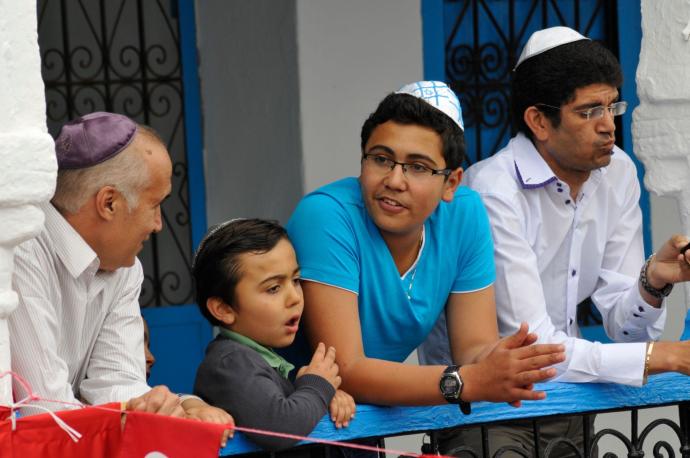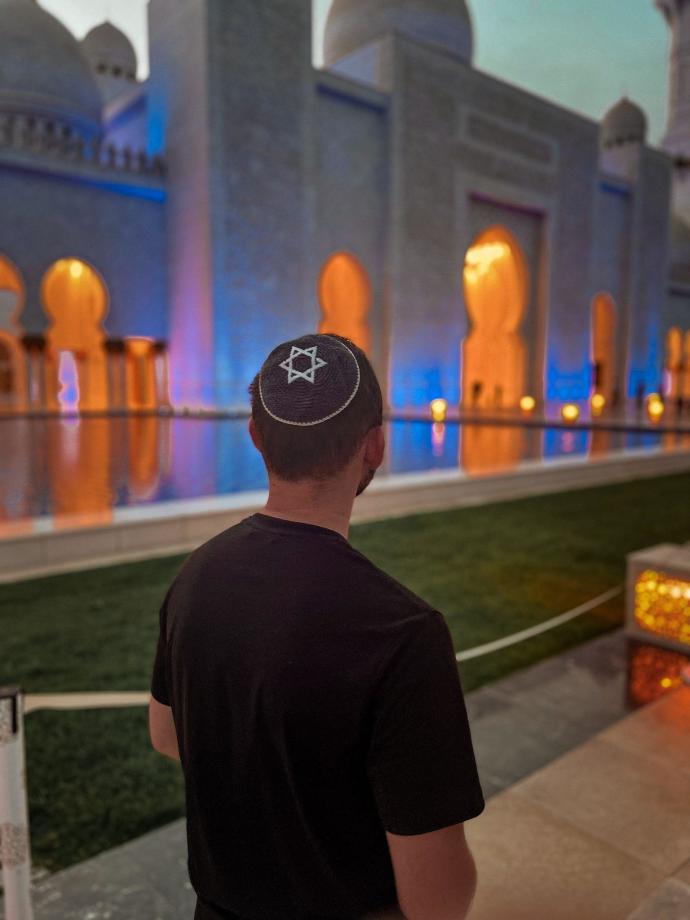Antisemitism grows, but not in Arab countries - Opinion

Antisemitism is increasing in Western countries, causing Jews to flee, but there is an untold story of the Jews in Arab countries today.
The recent remarks made by Kanye West during his damning interview with Alex Jones and Holocaust denier Nick Fuentes shocked the Jewish world, and rightfully so. The pop star "Ye" insisted that he loved the Jews while at the same time loving Nazis.
"I like Hitler. ... I'm not trying to be shocking; I like Hitler. The Holocaust is not what happened, let's look at the facts of that, and Hitler has a lot of redeeming qualities," Ye said while fully covered in a black mask.
I was relieved to see the condemnation of Ye's hateful remarks from the right and the left - but the number of hate crimes targeting Jews in America is troubling. The New York City Police Department (NYPD) just released a report that says 60% of the hate crimes reported in November targeted Jews - an increase of 125% in the city compared to the same month in 2021.
While Jews are advised to conceal their identity in major Western cities, in major Arab cities in the Middle East, the story is different for Jews.
After the historic Abraham Accords were forged in 2021 between Israel and four Arab countries - the UAE, Bahrain, Morocco, and Sudan - I decided to fly for the first time as an Israeli Jew to Dubai to see the Expo - a place where people of all nationalities and faiths meet and learn about each other's countries. I spoke Hebrew freely and was greeted by a warm "Shalom" whenever locals asked where I came from. But my kippa was still in my pocket because I wasn't sure if it was a good idea to put it on my head. I don't usually wear a kippa, but to me, it is a symbol of my identity, and to wear it in an Arab country is a symbol of peace.
A few days later, we drove to the capital of the United Arab Emirates, Abu Dhabi, to meet with local friends whom we connected with on social media. Our good friend took us to see the largest mosque in all of the Emirates, Sheikh Zayed Grand Mosque. To me, as an Israeli, it was a dream come true. I had seen the holy place in Google photos, and now I was able to actually be there.
While walking around the glorious Mosque and learning about its history, I told my friend about the kippa in my pocket. He immediately insisted that I put it on my head and said with a lot of confidence that I would love the reaction I would get. Well, I put the kippa on my head, and we continued walking; people were staring at me, some were taking photos of me, and during our time at the Mosque, several came to greet me and said, "Shalom." I truly felt the fruits of peace as I was walking with my Emirati friend in Abu Dhabi while wearing my kippa.
As I write these words, the UAE is about to complete construction of an interfaith center that includes a Mosque, Church and a Synagogue.
But if we zoom out, Jews in Arab countries throughout the Middle East and Africa are doing far better than decades ago. Saudi Arabia has an unofficial Rabbi named Jacob Herzog; it welcomes Jewish visitors and also allows Israeli flights to use its airspace. Egypt is working to restore the ancient Ben Ezra Synagogue in Old Cairo in an attempt to revive the Egyptian Jewish heritage. Jews in Tunisia are a strong, thriving minority that coexists with the Muslim majority.
Our era proves that the future of Jews in Arab countries can be different. Of course, we cannot forget the exodus of Jews from Arab countries due to persecution, mainly from 1948 to the early 1970s - becoming refugees. Around 850,000 Jews were expelled from Muslim-majority countries, leaving all of their belongings and property behind.
And we cannot turn a blind eye to the ongoing antisemitic campaign against Jews throughout Arab countries today, headed by Palestinian propagandists. Still, it is crazy how times have changed. There is a breakthrough in Arab countries - they understand that the Jewish people are their partners - not enemies. I will say even more - we are family, family in peace and humanity.
Hananya Naftali is a leading Israeli Jewish influencer and human rights activist in the fight against antisemitism, anti-Zionism, and the BDS Movement.
This op-ed is published in partnership with a coalition of organizations that fight antisemitism across the world. Read the previous article by Jason Shvili.
Jerusalem Post Store
`; document.getElementById("linkPremium").innerHTML = cont; var divWithLink = document.getElementById("premium-link"); if (divWithLink !== null && divWithLink !== 'undefined') { divWithLink.style.border = "solid 1px #cb0f3e"; divWithLink.style.textAlign = "center"; divWithLink.style.marginBottom = "15px"; divWithLink.style.marginTop = "15px"; divWithLink.style.width = "100%"; divWithLink.style.backgroundColor = "#122952"; divWithLink.style.color = "#ffffff"; divWithLink.style.lineHeight = "1.5"; } } (function (v, i) { });


